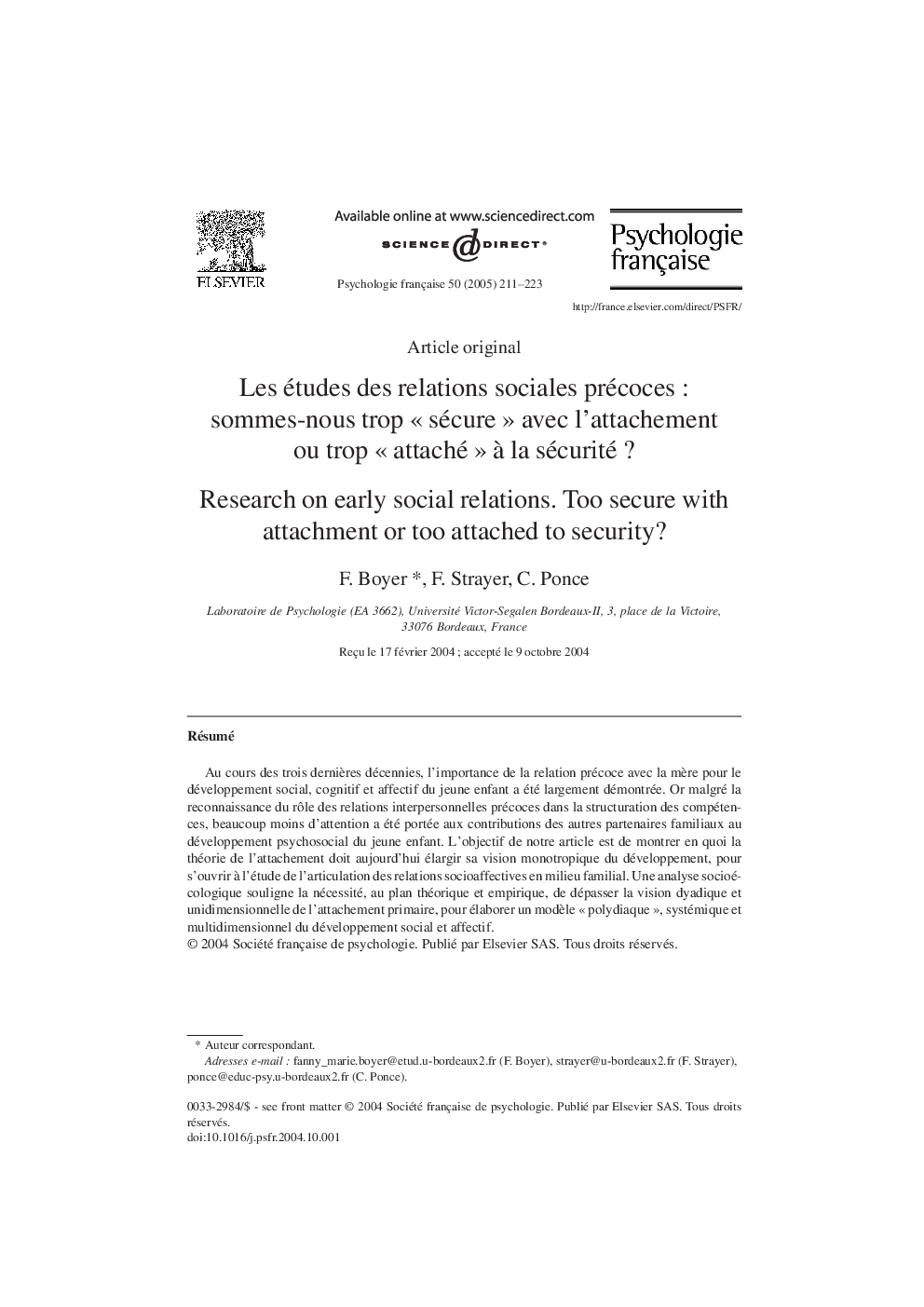| Article ID | Journal | Published Year | Pages | File Type |
|---|---|---|---|---|
| 10305903 | Psychologie Franaise | 2005 | 13 Pages |
Abstract
During the past thirty years, empirical research has amply demonstrated the central role of early mother-child relations for subsequent social, cognitive and affective development. However, this confirmation of the vital role of primary attachment for later personal development has been accompanied by a relative neglect of the contribution of other social partners to the emerging competence of the young child. A critical review of the attachment literature underscores the need to replace the monotropic model of primary attachment by a more systemic model of development within the polyadic context of the family. For both theoretical and empirical reasons, a social ecological approach to early development permits overcoming the prosocial, positivistic biases of a single dimension, dyadic model of early socialization. The formulation of more systemic, multi-dimensional models of early family relations promises to advance our understanding of the complex adaptive processes that serve as developmental foundations for children's emerging interpersonal competence.
Related Topics
Social Sciences and Humanities
Psychology
Psychology (General)
Authors
F. Boyer, F. Strayer, C. Ponce,
